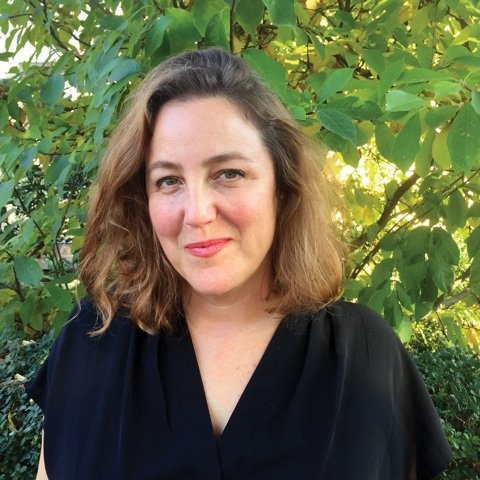Columbia College | Columbia University in the City of New York
Anna Winger Creates “Unorthodox” Television

Jörg Winger
As the first German-language series on American television, Deutschland ’83 was in the vanguard of the transnational linguistic revolution ushered in by streaming services (it was released on the Sundance network in 2015). “Television was always produced for a national audience; everything was defined by language,” Winger says. “Deutschland was a huge deal because a subtitled TV show had never been on TV in America, let alone in German. But in the course of time that we’ve been making the Deutschland trilogy, I feel like it’s become normal to watch shows in their original language.” Deutschland ’89, the final installment, began streaming on Hulu in October.
For Winger, this new freedom to roam across countries, cultures and languages is a game changer. “As a writer, it opens up the possibilities of what stories can be told,” she says. Her most recent project, the hit Netflix limited series Unorthodox — adapted from Deborah Feldman’s eponymous memoir about leaving her strict Hasidic community in Brooklyn — was filmed in New York and Berlin in English, German and Yiddish. “The idea with Unorthodox from the very beginning was to tell it in Yiddish, because we had never seen anything in Yiddish [targeted to mainstream audiences]. Netflix went for it, and I think the show’s success supports doing things true to language.” Confirming Winger’s approach are the Primetime and International Emmy awards garnered by Unorthodox and Deutschland ’83, respectively.
The daughter of anthropologists, Winger spent much of her childhood in Mexico and arrived at the College intending to make use of her fluent Spanish as a comparative literature major. Ironically, a gap year spent traveling in South America had the unintended effect of turning her attention toward film instead, and Winger spent her remaining two years at Columbia taking film classes in Dodge Hall. The education she received prepared the ground for her professional future in ways that she couldn’t have anticipated, she says. “The Berlin Wall had just come down, so [director and film professor] Miloš Forman had hired all these guys from Central and Eastern Europe. I had an Eastern European lm education,” Winger notes wryly from her home in Berlin.
That said, Winger graduated with no plans to become a filmmaker. “The distance to be traveled between being the artistic driver of the material and working as a PA on a set seemed really, really far,” she says.
Instead, she became a photographer, which she describes as “epic training” for her current work as a showrunner. “There’s a production aspect to being a photographer and a showrunner that’s very similar,” she notes. Her creative pursuits also included writing a novel, This Must Be the Place (2008), and producing the NPR series Berlin Stories.
Winger’s mid-life pivot to screenwriting was prompted by her own binge watching of the Danish dramas Borgen and The Legacy. “They reminded me of novels, in that they were so tightly structured and character driven. My husband and I watched them together and decided we could do something similar. That’s how I ended up writing the pilot for Deutschland on spec,” she says.
The locus of her artistic formation, New York, continues to be an important reference point for Winger, both in the projects she selects and the people she works with. “When we were making Unorthodox, having an understanding of New York culture was vital,” she says. Accompanied by the show’s director, production designer and costume designer, Winger spent weeks in Williamsburg “to look and touch and feel and experience that space.” Adding to the sense of continuity between her New York past and Berlin present, a significant number of Winger’s employees at her production company are Columbia alumni: “It’s not by design, but they find their way to me,” she says.
Named Studio Airlift for its original location in Berlin’s Tempelhof Airport — the site of the 1948 Berlin Airlift that circumvented the Soviet blockade choking West Berlin by airlifting in supplies — Winger’s production company is likewise intended as a creative intervention. “A lot of what’s going on at Airlift has to do with training writers to also be producers; that’s just not the way things have traditionally been done in Germany,” she says. “We have a chance to make the road by walking, because that path isn’t laid out so clearly here.”
Rebecca Prime ’96 is the associate editor of Film Quarterly and the author of several books, including Hollywood Exiles in Europe: The Blacklist and Cold War Film Culture.
Issue Contents
Published three times a year by Columbia College for alumni, students, faculty, parents and friends.
Columbia Alumni Center
622 W. 113th St., MC 4530, 6th Fl.
New York, NY 10025
212-851-7852
cct@columbia.edu
Columbia Alumni Center
622 W. 113th St., MC 4530, 4th Fl.
New York, NY 10025
212-851-7488
ccalumni@columbia.edu

